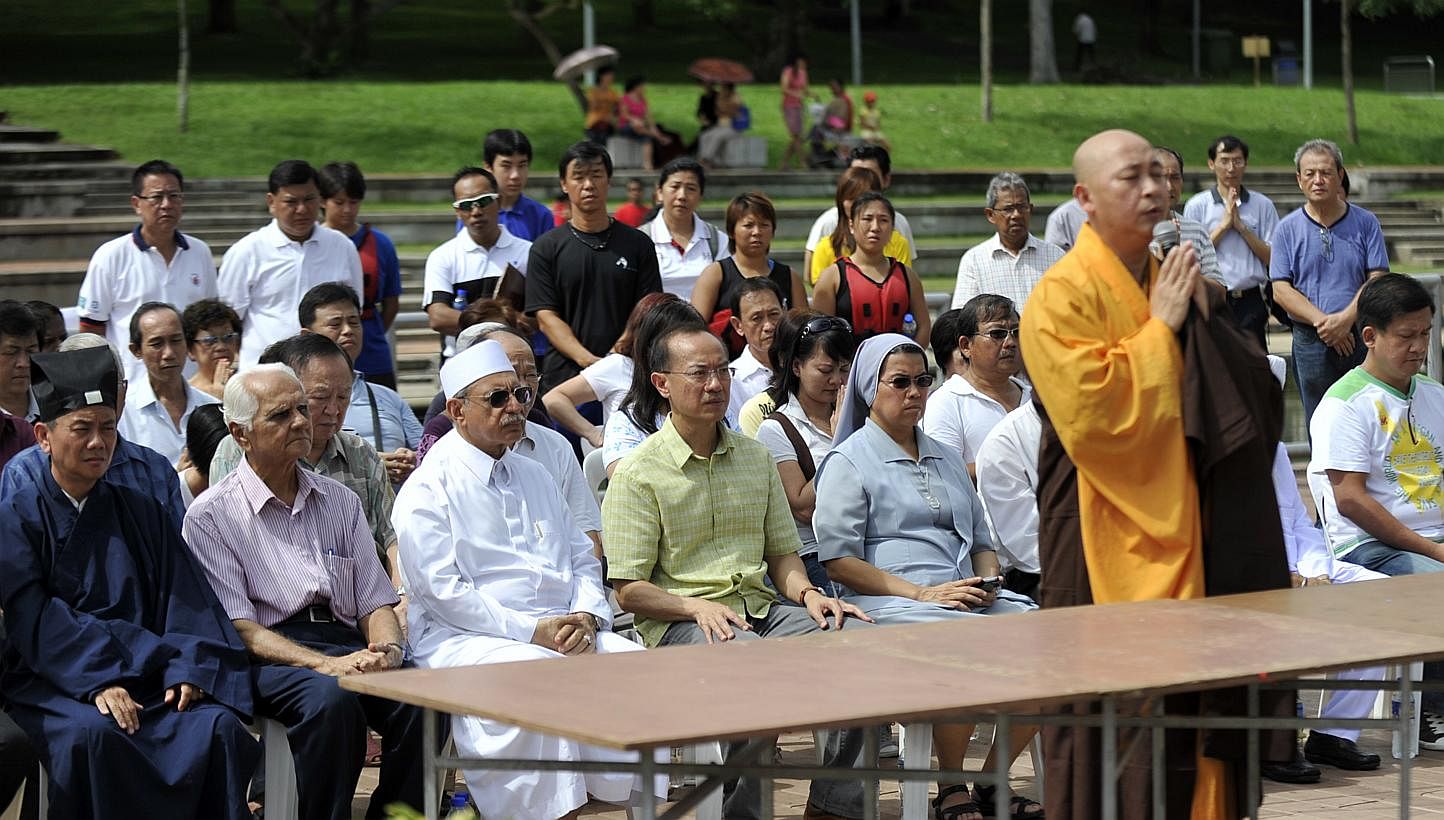Don't forget ,the Jap translators and interpreters escaped death .
Concerning the 2 well known translators Dead farts n Prata man... How many locals did they kill? Or did they save singkies like this lady?
https://mothership.sg/2017/04/the-s...-spoke-japanese-saved-many-lives-during-wwii/
March 22, 2016
THE IRON LADY OF JOHOR
AT the age of 15, girls were pretending to be boys during the Japanese Occupation in Malaya, but Yap Chwee Lan was bravely rescuing the people of Kampung Baru, Johor, all because she could speak Japanese.
“Every night, about seven or eight young girls from the neighbourhood would come to my house to sleep because they felt safer there. They knew I could speak Japanese,” recalled Yap, now 90.
“The Japanese soldiers would come knocking on our door to ask for young girls and I’d respond in Japanese, ‘Why do you need women? You need housekeepers?’. They were shocked I could speak Japanese.”
Yap learnt the language from her former Japanese employer, who was a hairdresser in Johor. The then 13-year-old picked up the language quickly, and was even treated well by his family.
Yap’s fluency in their language granted her favour in the eyes of the Japanese, and this ordinary girl found herself holding extraordinary power – the ability to save people.
She managed to save those who lived in her town, Kampung Baru, Johor, by identifying them – in Japanese – to the soldiers who would have killed them on suspicion of aiding the resistance.
And we were there to capture her experiences as the
R.AGE crew brought her around Johor to film at locations that hold significant memories during the Occupation. This is for
The Last Survivors, an interactive online documentary project that aims to raise awareness to youths about the importance of preserving Malaysian World War II stories.

From the temple where she sought refuge during the Japanese attack in Singapore to the laundry shop where she hid young girls from the soldiers, World War II survivor Yap Chwee Lan brought the R.AGE crew around Johor for The Last Survivors shoot. — CHEN YIH WEN/R.AGE
Listening to her stories when he was growing up, one of Yap’s grandson Sebastian Chew, 18, is glad he didn’t have to experience WWII and the Occupation as he thinks it will haunt him throughout his life.
“I can’t imagine going through everything – from the bombings, hiding, living in fear and when the Japanese made the people dig their own graves in one of the fields and killed them. I don’t know how my grandma did it,” he said.
“That’s why I think it’s important for young people to know about these war stories so they can prevent anything of this sort from happening in the future. It’s cruel and heartbreaking.”
In her teenage years, Yap, whose father passed away when she was seven years old, had to work because her family was living in poverty.
She got married when she was 15, and lived with her husband Chiew Seng Leung at his laundry shop, Kedai Dobi Shanghai, in Johor Baru. Twenty days after their wedding, the Japanese started bombing Singapore.
Japanese fighter planes, based in Johor, would fly across to Singapore twice a day to bomb the neighbouring country. As the Japanese was attacking Singapore, lots of people walked over to Johor for safety. Yap and her family evacuated to Tampoi.
“We packed food and clothes, and placed them on my husband’s bicycle. As we were walking to Tampoi, we were stopped by a soldier because he wanted our bicycle. I told him in Japanese that it was ours and he let us through,” said Yap.
“The soldiers would leave you alone if they knew you could speak Japanese because it was like you were one of them. They’ll have more respect for you.”
At the old temple in Tampoi, Yap sat down with R.AGE producer Chen Yih Wen to talk about the time she and her family, along with 50 other people, hid at the temple for a week before it was safe for them to go home. — VIVIENNE WONG/THE STAR
Once they were in Tampoi, they sought refuge in a temple along with about 50 other refugees, but soldiers came looking for comfort women. Yap not only told them there were none, but also said she was part Japanese, hoping they wouldn’t come back.
But the next day, the Japanese returned. This time, they were with their general.
“Strangely enough, I wasn’t scared.”
“He was impressed that I could speak Japanese and praised me, saying it was good because I could help the Japanese soldiers,” she said. He proceeded to ask Yap if they had enough food and made sure they did by sending them rice, sugar and flour so they could cook.
He also offered her a job in Singapore as a liaison officer between the Japanese and the locals. She took the job after the island was invaded, but later learned that the Singaporeans she had liaised with were all eventually killed.
The distance was too much for Yap to handle as well, as she didn’t know if her family was well and alive. She returned to Johor one week later, and things were unfortunately similar to what was happening in Singapore.
Chiew’s boss had been arrested, along with a bunch of other people.
“There were black flags all along the streets,” Yap recalled. “It meant everybody was to stay home, because the Japanese would arrest anyone on sight.”
Those who were arrested were taken to a house in Jalan Abdul Samad, behind what is now the Maktab Sultan Abu Bakar, to be held before being taken to Dataran Bandaraya, where they would be executed.
“When I got to the house, the people were kneeling on the ground, their hands tied behind their backs with thick wire as the Japanese soldiers pointed bayonets at them,” said Yap.
“A lot of them called out my name, begging me to save them. Then the Japanese asked if I knew these people.”
“I said, ‘Yes, I do’. A lot of them lived in my neighbourhood. When I identified them, they were freed.”
The rest, whom she couldn’t identify, weren’t so lucky. Her mother’s friend’s son was one of the unlucky ones.
“I didn’t see him there, I was devastated when I found out. His mother was crying in the street,” said Yap, recalling the horrors of wartime Malaya.
Those remained were brought to the field. They were asked to dig holes in the ground, sit at the edge of the holes and were shot with machine guns.
As the bodies fell in, those who were merely injured were kicked into those holes they had dug themselves and buried alive together with the dead.
While a great number of people died during the Occupation, many more owe their lives to Yap.
Her family, though, remained safe, thanks to Yap.
“Before I went to Singapore, the Japanese general gave me a permit for my family,” she said. “He told me, ‘If anybody disturbs your family, ask them to report to one of my officers’.”
Today, Yap and her family still live in Johor, where some of the survivors’ descendants still recognise her.

Yap was accompanied by her grandson (left) Sebastian Chew, 18, and her son (right) Chiew Kek Whye, 64, during The Last Survivors shoot at her house in Johor. She has 11 children, 25 grandchildren and 10 great grandchildren. ― HAFRIZ IQBAL/R.AGE
“I was walking around town and suddenly someone called out, ‘Ah Ma!’. They told their kids that I saved their grandfather or grandmother,” Yap said with a laugh.







 KNN!
KNN!